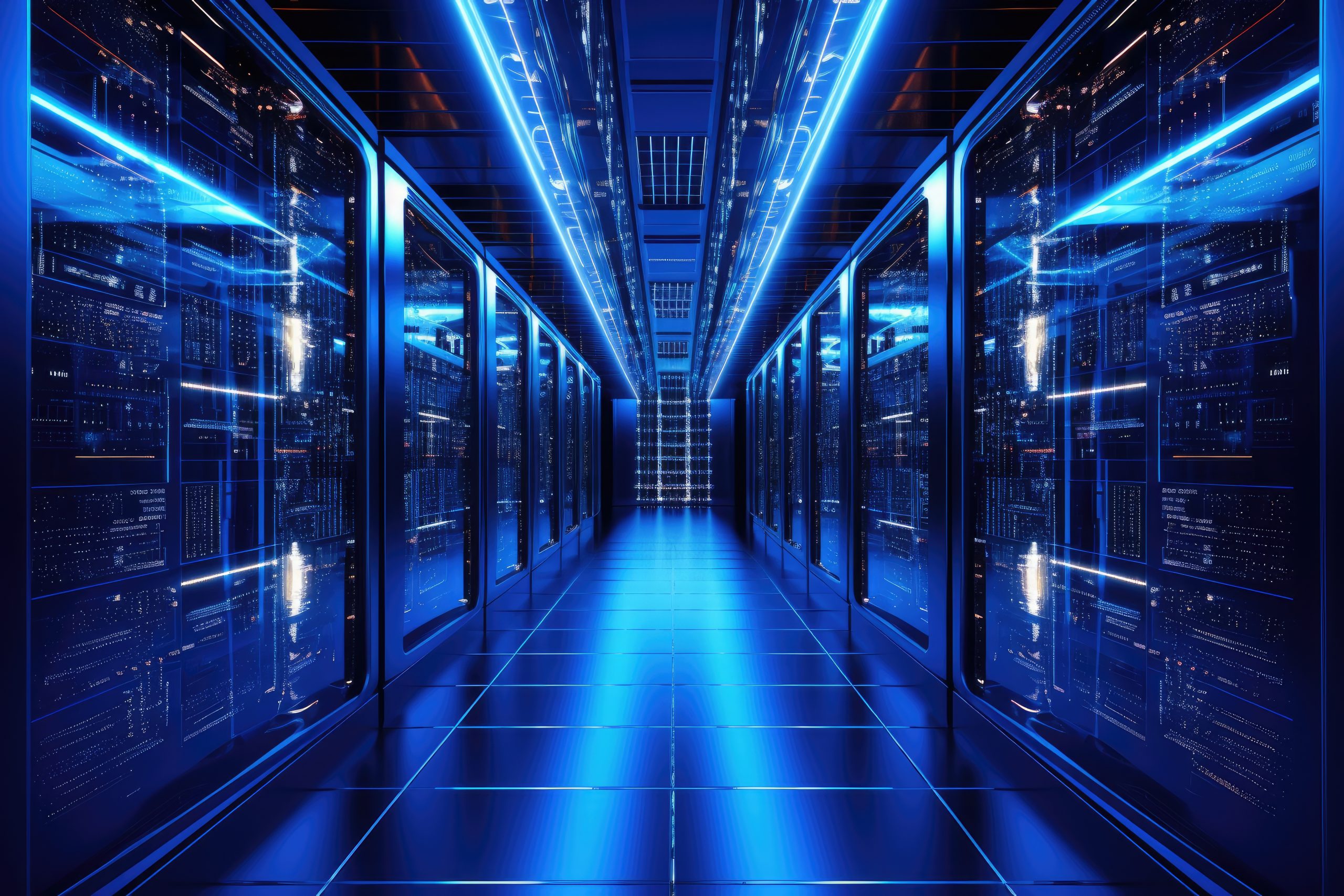- Integrated modular data center construction will bring capacity online at speed to meet growing global demand for AI and cloud computing
- Standardized on-site power generation is key to accelerate the development of new data centers
BERLIN, Germany and DUBLIN, Ireland — June 3, 2025 — Intelligent power management company Eaton, and Siemens Energy, one of the world’s leading energy technology companies, have announced a fast-track approach to building data centers with integrated onsite power. They will address urgent market needs by offering reliable grid-independent energy supplies and standardized modular systems to facilitate swift data center construction and deployment.
The collaboration will enable simultaneous construction of data centers and associated on-site power generation with grid connection and the integration of renewables to meet regional regulatory requirements, if required. This will provide data center owners and developers with choices they don’t have at present to enable them to build and run new data centers.
Siemens Energy’s modular and scalable power plant concept is tailored to the specific needs of data center operators. The standard configuration generates 500 megawatts (MW) of electricity featuring highly efficient SGT-800 gas turbines, redundancy and additional battery storage systems, ensuring the highest reliability. Based on its modular approach, the size of the plant can be scaled up and down. In the future, it can also operate in a carbon-neutral manner, provided hydrogen is available and part of the data center’s sustainability strategy. The Siemens Energy concept also includes an optional emission-free clean air grid connection to be installed either during construction or as a retrofit. This feature would enable data centers to provide grid services.
Eaton will provide customers with electrical equipment such as medium voltage switchgear, low voltage switchgear, UPS, busways, structural support, racks and containment systems, engineering services and the software offerings needed to protect and enable IT loads from the medium-voltage grid to the chip and help accelerate building and commissioning data centers with skidded and modular designs.
Cyrille Brisson, Global Segment Leader, Data Centers, Eaton, said: “Our approach of letting customers pick the right balance of energy sources is very flexible and construction to start-up time is swift with options to reduce emissions in both the short and long term. Crucially, our approach offers data center owners and developers the opportunity to build capacity and bring it online fast in any location where they have land available that is close to gas, water and fiber.”
Andreas Pistauer, Global Head of Sales at Siemens Energy’s Gas Services Business Area, said: “We offer hyperscalers, co-locators and investors a unique package, enabling them to reduce the time-to-market by up to two years in many places which leads to significant revenue gains. Our power plant design is built with redundancy, eliminating the need for backup diesel generators, and reducing CO2 emissions by about 50 percent.”
Meeting the huge electricity demand of data centers is a major challenge
Global power demand is growing at a rapid pace due to rising living standards, the increasing electrification of industry, mobility, and heating, and the development of digital technologies. Data centers are an especially dynamic driver of the growing demand for electricity.
Tremendous amounts of energy are required to power the inexorable rise of artificial intelligence. A single query to an AI model like ChatGPT consumes much more electricity than a conventional Google search. According to forecasts, the power consumption of data centers could more than double to around 945 terawatt-hours by 2030. That amount is equivalent to the total power consumption of Japan today.
On top of that, data centers are often built on large-area sites with no power grid infrastructure. To supply these sites with the required electricity, therefore, it will be necessary to extend the power grid in addition to increasing power generation. However, expanding the power grid often takes longer than building the data centers themselves. That is a huge challenge for the operators of data centers, who require quick solutions to deal with it. That is why they are increasingly investing in their own independent and reliable energy supply systems.
This is where Siemens Energy and partners like Eaton come in. They develop modular, scalable solutions that make it possible to supply electricity to data centers quickly, efficiently, and if necessary, independently of existing power grids.
Contact
Sabine Sill
sabine.sill@siemens-energy.com
Contact
Angela Swann
Siemens Energy is one of the world’s leading energy technology companies. The company works with its customers and partners on energy systems for the future, thus supporting the transition to a more sustainable world. With its portfolio of products, solutions and services, Siemens Energy covers almost the entire energy value chain – from power and heat generation and transmission to storage. The portfolio includes conventional and renewable energy technology, such as gas and steam turbines, hybrid power plants operated with hydrogen, and power generators and transformers. Its wind power subsidiary Siemens Gamesa makes Siemens Energy a global market leader for renewable energies. An estimated one-sixth of the electricity generated worldwide is based on technologies from Siemens Energy. Siemens Energy employs around 101,000 people worldwide in more than 90 countries and generated revenue of €34.5 billion in fiscal year 2024.
www.siemens-energy.com.
Eaton is an intelligent power management company dedicated to protecting the environment and improving the quality of life for people everywhere. We make products for the data center, utility, industrial, commercial, machine building, residential, aerospace and mobility markets. We are guided by our commitment to do business right, to operate sustainably and to help our customers manage power ─ today and well into the future. By capitalizing on the global growth trends of electrification and digitalization, we’re helping to solve the world’s most urgent power management challenges and building a more sustainable society for people today and generations to come. Founded in 1911, Eaton has continuously evolved to meet the changing and expanding needs of our stakeholders. With revenues of nearly $25 billion in 2024, the company serves customers in more than 160 countries.
www.eaton.com.
Source: Siemens Energy

